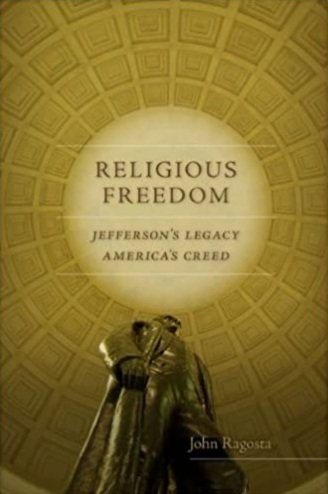
Books by John A. Ragosta
Wellspring of Liberty: How Virginia’s Religious Dissenters Helped Win the American Revolution and Secured Religious Liberty
Before the American Revolution, no colony more assiduously protected its established church or more severely persecuted religious dissenters than Virginia. Both its politics and religion were dominated by an Anglican establishment, and dissenters from the established Church of England were subject to numerous legal infirmities and serious persecution. By 1786, no state more fully protected religious freedom.
This profound transformation, as John A. Ragosta shows in this book, arose not from a new-found cultural tolerance. Rather, as the Revolution approached, Virginia's political establishment needed the support of the religious dissenters, primarily Presbyterians and Baptists, for the mobilization effort. Dissenters seized this opportunity to insist on freedom of religion in return for their mobilization. Their demands led to a complex and extended negotiation in which the religious establishment slowly and grudgingly offered just enough reforms to maintain the crucial support of the dissenters.
After the war, when dissenters’ support was no longer needed, the establishment leaders sought to recapture control, but found they had seriously miscalculated: wartime negotiations had politicized the dissenters. As a result dissenters' demands for the separation of church and state triumphed over the establishment's efforts and Jefferson's Statute for Establishing Religious Freedom was adopted.
Historians and the Supreme Court have repeatedly noted that the foundation of the First Amendment's protection of religious liberty lies in Virginia's struggle, turning primarily to Jefferson and Madison to understand this. In Wellspring of Liberty, John A. Ragosta argues that Virginia's religious dissenters played a seminal, and previously underappreciated, role in the development of the First Amendment and in the meaning of religious freedom as we understand it today.
Religious Freedom: Jefferson’s Legacy, America’s Creed
For over one hundred years, Thomas Jefferson and his Statute for Establishing Religious Freedom have stood at the center of our understanding of religious liberty and the First Amendment. Jefferson’s expansive vision―including his insistence that political freedom and free thought would be at risk if we did not keep government out of the church and church out of government―enjoyed a near consensus of support at the Supreme Court and among historians, until Justice William Rehnquist called reliance on Jefferson "demonstrably incorrect." Since then, Rehnquist’s call has been taken up by a bevy of jurists and academics anxious to encourage renewed government involvement with religion.
In Religious Freedom: Jefferson’s Legacy, America’s Creed, the historian and lawyer John Ragosta offers a vigorous defense of Jefferson’s advocacy for a strict separation of church and state. Beginning with a close look at Jefferson’s own religious evolution, Ragosta shows that deep religious beliefs were at the heart of Jefferson’s views on religious freedom. Basing his analysis on that Jeffersonian vision, Ragosta redefines our understanding of how and why the First Amendment was adopted. He shows how the amendment’s focus on maintaining the authority of states to regulate religious freedom demonstrates that a very strict restriction on federal action was intended. Ultimately revealing that the great sage demanded a firm separation of church and state but never sought a wholly secular public square, Ragosta provides a new perspective on Jefferson, the First Amendment, and religious liberty within the United States.
Patrick Henry: Proclaiming A Revolution
Often referred to as "the voice of the Revolution," Patrick Henry played a vital role in helping to launch the revolt of the American colonies against British rule. An early and compelling Revolutionary orator, Henry played an active part in the debates over the founding of the United States. As a leading anti-federalist, he argued against the ratification of the Constitution, and at the state level, he opposed Thomas Jefferson’s Statute of Religious Freedom in Virginia. In both his political triumphs and defeats, Henry was influential in establishing the nature of public discourse for a generation of new Americans.
In this concise biography, John A. Ragosta explores Henry’s life and his contributions to shaping the character of the new nation, placing his ideas in the context of his times. Supported by primary documents and a supplementary companion website, Patrick Henry: Proclaiming a Revolution gives students of the American Revolution and early Republic an insightful and balanced understanding of this often misunderstood American founder.


